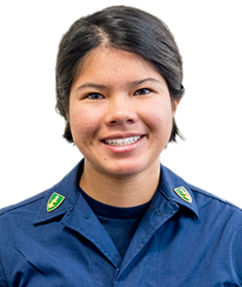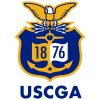 The academic majors offered at USCGA are of critical importance to properly supplying the United States Coast Guard with officers that are prepared to serve in a demanding environment. The goal at USCGA is to graduate and commission an evenly distributed number of officers in each academic major every year. It is essential that CGA applicants carefully examine their desires and do research when expressing their original intent for a major.
The academic majors offered at USCGA are of critical importance to properly supplying the United States Coast Guard with officers that are prepared to serve in a demanding environment. The goal at USCGA is to graduate and commission an evenly distributed number of officers in each academic major every year. It is essential that CGA applicants carefully examine their desires and do research when expressing their original intent for a major.
I am a Marine and Environmental Sciences (MES) major with a focus on chemical and physical sciences. I knew I wanted to be an MES major since I applied because I love the outdoors and wanted to learn more about it. In high school, I took AP Chemistry, Physics, and Biology. Even though I did not earn college credit for the AP classes, the rigor was worth it to prepare me for science at the Academy. I was fortunate enough to validate Chemistry 1 and 2 at the Academy, giving me more options in the major. As of now, I am also taking botany classes at Connecticut College because of my interest in forestry.
I spend about two hours plus a night on major-specific studying. The best part of the major has to be the field trips and field work. It’s cool to be exposed the information in the classroom, but it’s better to see science in action at the aquarium, beach, or in and around the Thames River. The most difficult part of the major is the math and programming portions for Waves and Tides. I did not expect as much math as there is, though it’s mostly in the physical oceanography portion. If I were to give advice to someone considering my major, I would say that MES is one of the most tactile and rewarding academic programs. There are difficult semesters, but nothing beats hands-on learning.
